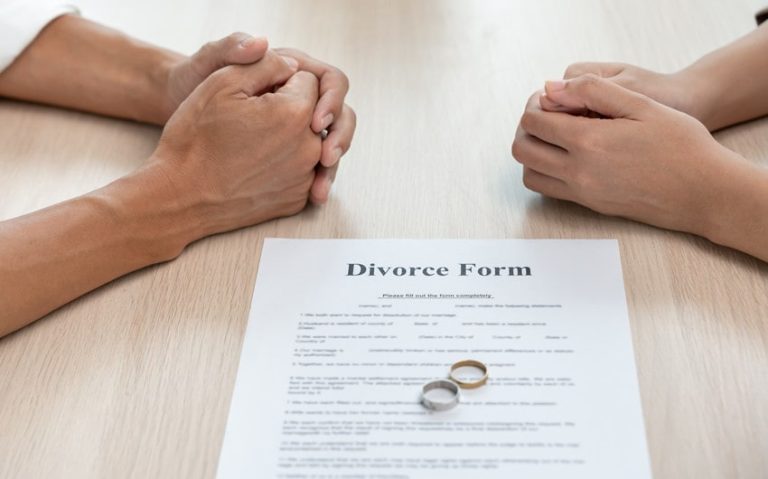Navigating Emotional Challenges in Divorce Mediation Successfully
Divorce mediation is an emotional rollercoaster.
On top of grieving the end of your marriage, making big life-changing decisions, and talking to your ex-spouse, you have to get through mediation.
Let me tell you…
Mediation doesn’t have to be a torturous affair. By arming yourself with the knowledge of how to navigate the emotional minefield, you can successfully manage the mediation process and move on with your life.
In this Article You’ll Learn:
- Why Emotions Are So High During Divorce Mediation
- The 6 Most Common Emotional Challenges You’ll Face
- 4 Proven Strategies for Staying Calm and Focused
- Tips for Communicating Effectively When Emotions Are Running High
- Building a Support System That Works for You
Why Emotions Are So High During Divorce Mediation
Divorce mediation dredges up all the feelings you’ve been trying to avoid.
The process forces you to face harsh truths about the end of your marriage, your finances, and your future. You’re making decisions that will affect the rest of your life, all while processing grief, anger, regret, and fear.
It’s completely normal.
Unlike litigation where most communication occurs through your attorney, mediation requires you to be actively engaged. You can’t hide behind your lawyer.
While the direct involvement of the parties is one of mediation’s biggest benefits (research shows that 80% of couples that try mediation successfully settle their divorce out of court), it also means you must have the emotional wherewithal to handle the process.
The higher your emotions, the more difficult it becomes to think clearly, communicate effectively, and stay focused on practical solutions.
Which is why mastering your emotions isn’t just a nice-to-have — it’s critical for effective divorce mediation.
The 6 Most Common Emotional Challenges You’ll Face
Here’s the emotional landscape that almost every single person going through divorce mediation experiences:
Anger
You may be angry at your ex-spouse for all sorts of things. This anger can fuel a “win-at-all-costs” mentality, clouding your ability to think practically and making you less likely to give ground or compromise.
Fear
Divorce is a major life change. You’re afraid of the unknown, the future, and being on your own. These fears can lead you to make decisions based on panic or greed instead of logic.
Grief
Even if divorce is the right decision, you still grieve the loss of your marriage and the life you thought you’d have.
Guilt
You might feel guilty about the impact of divorce on your family, your children, and even your spouse. This guilt can cause you to agree to things that aren’t fair or in your best interest just to “get it over with.”
Working with an experienced divorce lawyer in Mesa, Arizona can help you understand your rights and options so that you don’t make decisions based on emotion that you might regret later.
4 Proven Strategies for Staying Calm and Focused
If you want to learn how to survive divorce mediation like a champ, you need to adopt some of these strategies.
Take Breaks When Needed
Don’t power through a session if you’re getting overwhelmed. In fact, good mediators are trained to recognize when emotions are running high, and will ask if you need a break to cool off.
Remember: Taking a break is a sign of emotional intelligence and strength, not weakness.
Prepare Emotionally Before Each Session
Approach each mediation session with the right mindset, ready to tackle the issues.
Take some time before each session to reflect on the topics that will be discussed, the best ways to respond to challenging conversations, and your priorities and goals for the session.
Focus on the Future, Not the Past
Mediation is about finding solutions and planning for the future. It’s not the place to rehash everything that went wrong in the marriage.
When you find yourself getting caught up in past hurts or mistakes, redirect your focus to what you need to move forward.
Here’s the truth: Focusing on the past only drags out the mediation process, makes it more expensive, and causes more emotional pain.
Tips for Communicating Effectively When Emotions Are Running High
Communicating gets 10x harder when your divorce emotions are in high gear.
But it also becomes 10x more important.
Use “I” Statements Instead of “You” Accusations
Instead of “You never helped with the kids,” say “I felt overwhelmed with childcare responsibilities.”
This shifts the focus from accusing your spouse to communicating your experience.
Listen to Understand, Not to Respond
Your spouse may say things that trigger you, but try to listen for the underlying concern instead of formulating a retort in your head.
Stay Solution-Focused
When discussions become heated, steer the conversation back to problem-solving.
Try: “How can we work together to solve this?” or “What solutions haven’t we considered?”
Building a Support System That Works for You
You don’t have to navigate the emotional challenges of divorce mediation alone.
But here’s how to build a support network that actually helps:
Work with a Therapist
Individual counseling provides an outlet to process your emotions without hijacking the mediation process.
A good therapist can help you work through your feelings and develop healthy coping strategies so you can stay focused on the future.
Lean on Trusted Friends and Family
Enlist help from close friends and family who have your best interests in mind.
The best support system for you will be friends and family who are able to listen without judgment, but also encourage you to make decisions based on logic and practicality, rather than reacting from an emotional place.
Consider a Divorce Coach
Divorce coaches are experts at helping people navigate the emotional challenges of divorce and the mediation process.
A coach can help you prepare for mediation sessions and craft a communication strategy.
Managing Emotional Challenges with Children Involved
Emotions run even higher when you have kids.
You’re not just worried about your own future — you’re concerned about your children’s wellbeing.
The good news?
Studies show that 54% of parents who ended up in joint physical custody achieved this with mediation. Mediation seems particularly well suited for parents who want to work together to create child-focused solutions.
Keep Your Children’s Best Interests Central
When the going gets tough, remind yourself that your decisions will impact your children for years to come.
Ask yourself: How will this decision affect my children’s happiness? What would give them the most stability?
Separate Spousal Issues from Parenting Issues
Your feelings about your spouse as a partner may not have anything to do with their parenting abilities.
Look at the facts of each parenting arrangement based on what’s best for the children and what’s practical.
Develop Healthy Co-Parenting Communication
You will need to communicate with your ex-spouse about your children for years to come.
Use the mediation process to set up healthy patterns of communication for sharing information and making decisions together.
Moving Forward After Mediation
If you can successfully master the emotional challenges in mediation, it sets you up for a much healthier life after divorce.
The emotional fortitude and communication skills you develop will benefit you for the rest of your life.
Remember: Mediation isn’t just about “finishing” your marriage. It’s about setting up the foundation for the rest of your life.
Summing It All Up
Divorce mediation is an emotional process, but the emotional challenges shouldn’t control you.
If you understand why your emotions are high, what common challenges to expect, have a few strategies up your sleeve to stay calm and focused, and build a strong support network, you can successfully navigate divorce mediation.
The key is remembering that:
- Your emotions are valid, but don’t have to dictate your decisions
- Taking breaks and asking for support is a sign of strength, not weakness
- Focusing on solutions, not problems, leads to better results
- The skills you develop during mediation will serve you well after the divorce
With 95% of divorce cases in the U.S. settling out of courtroom litigation, mediation is a path toward resolution that’s designed to take care of your emotional wellbeing and put you on track to build the life you want after divorce.
The emotional challenges are temporary. The life you build after divorce can be anything you want it to be.







